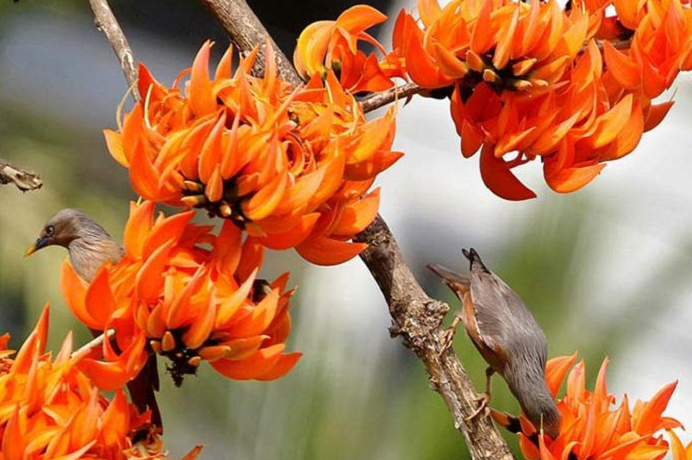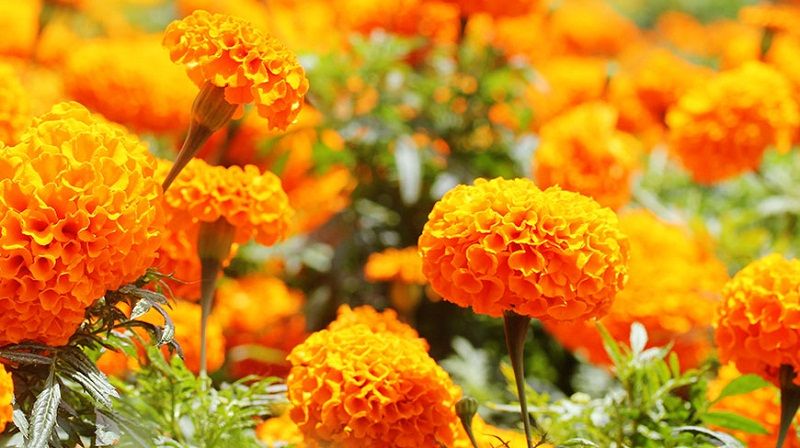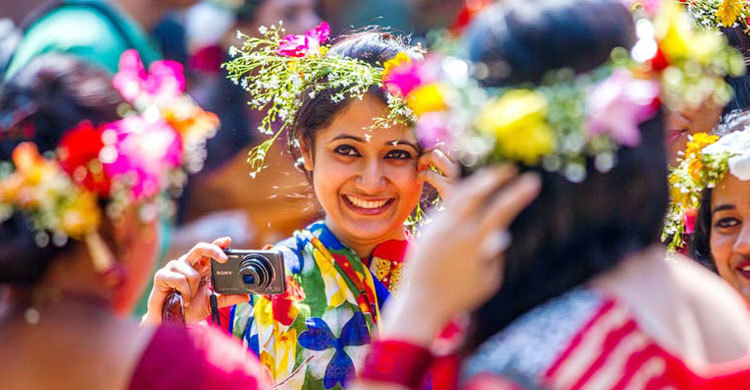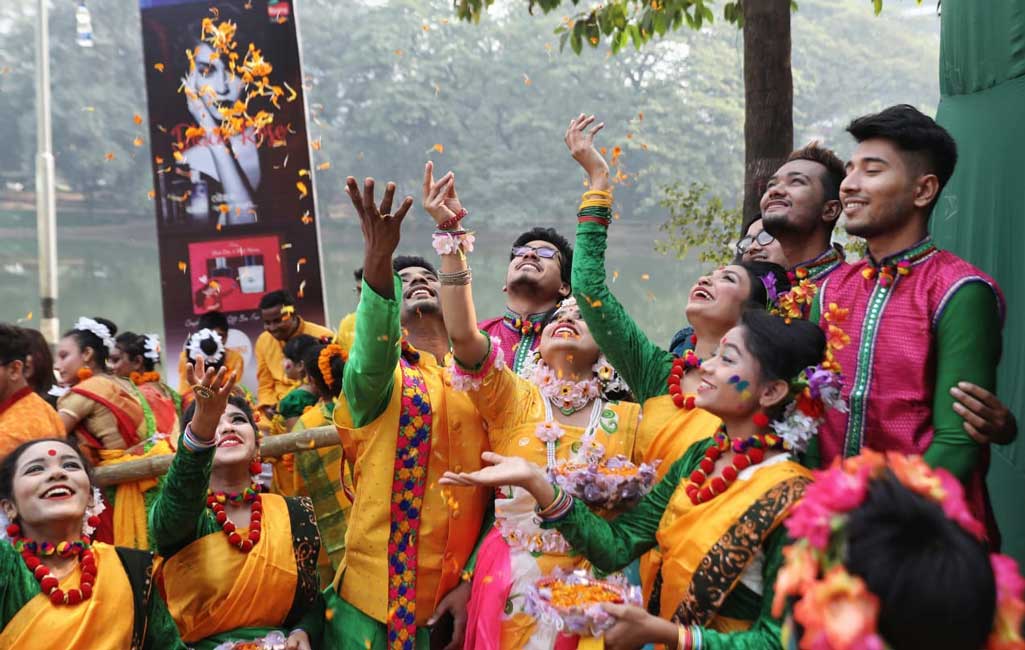“Aaha, Aaji E Boshonte Eto Phul Phute…”

“Oh no, this year Pohela Falgun is on a Saturday! That means no outdress this time! We’ll have to wait until Eid-ul-Fitre then!”
My classmate gushed about how eagerly she’d been waiting to drop the school uniform so that she could flaunt her outdress on February 13, celebrated as Pohela Falgun or the first day of Spring in the Bengali calendar. Although I’m usually an introvert, even I despaired out aloud, dearly hoping that Pohela Falgun wouldn’t fall on a holiday. That would mean that school would be closed and we’d miss out on the occasion of “outdress”. The next day we’d have to go back to wearing the same old boring uniform that we wear on every other day of the school calendar.
After expressing my shared anguish with my classmate, I headed for teachers’ room. The campus coordinator, who was also our ICT teacher, handed me a couple of our classwork copies and announced that even if Pohela Falgun fell on Saturday, “outdress” would be allowed for students the next day, meaning Sunday, the first day of the week!
Imagine the excitement gushing through me! I felt my heart jump! I quickly declared the good news to my classmates and then announced it to the students of other classes. When I returned to the classroom, one of the boys said, “Acha, Sunday na Valentine’s Day? Valentine’s Day te outdress dey keno?” Well, to be honest, none of us were interested in the fact that Sunday, February 14, was Valentine’s Day. Our collective attentions were focused on planning on what to wear for our outdress and how to style our hair on Falgun!
The much-awaited day finally arrived. Most of us girls wore salwar kameez while some of our seniors wore sarees. My friends and I talked about how awkward it would look to wear a saree and carry a school bag. That combination just wouldn’t work. But we noticed that some of the seniors (whom we called “apu”) had replaced their schoolbags with more elegant alternatives, enough to hold a few books and also look stylish at the same time. How clever of them!

Oh, Falgun! No more pesky sweaters and old-fashioned mufflers around! Flowers blooming, fresh greens sprouting everywhere, birds chirping; oh, the comfort of Spring! No more trouble waking up early on cold-cold mornings for school! Nice, isn’t it?
Pohela Falgun was the name of this annual festive event that made our boring morning assemblies special. Even those who usually missed assemblies would make sure to be in attendance only for the occasion of Pohela Falgun. And why not? Our female teachers would sprinkle fragrant marigold petals all over us as we’d queue for assembly, decked up in our colorful outfits. And very often, those bright little petals would land on our hair. Everybody loved that!

Although my school was an English medium institution in the city of Narayanganj, it never compromised with traditional Bengali cultural events. To mark Pohela Falgun, every person entering the school premises was greeted with fresh flowers, vibrant balloons and other pleasing decorations. After the assembly, the teachers would sing a line or two of the perfectly apt iconic Rabindrasangeet,
Aaha, aaji e boshonte eto phul phute,
Eto bnaashi baaje, eto paakhi gaay…
Those were the days of my school life in Bangladesh. Classes would go on as usual but the activities of the day would make the surroundings cheerful. Often there would be music and dance, too. It was always nice to see our pretty teachers dressed up in colourful sarees, complete with a flower tucked behind their ear!

Let me also reveal a little secret. Along with the excitement of Pohela Falgun in general, another treat awaited us girls: getting to see our crushes wearing panjabis in various hues of yellow, orange and red. And if your crush happened to be a senior, then that was it. We were done for swooning over them!

Over time, Pohela Falgun has taken on new routes. February 14 has now been designated as the date for officially celebrating Pohela Falgun. This comes on the back of changes made in the Bengali calendar by the Bangla Academy in 2020.
So this year Pohela Falgun will be celebrated along with Valentine’s Day (and falls in the year 1427 according to the Bengali calendar). Since it falls on a Sunday, memories of my schooldays sweep past me, like a comforting Falgun breeze.
Poet Subhash Mukhopadhyay wrote these famous lines: “phul phutuk, na phutuk, aj Bosonto”. Amen to that. No flowers right now in America; however, by no means does that change the fact that today is Pohela Falgun!
News Source:
https://www.dhakatribune.com/bangladesh/2020/02/10/pohela-falgun-to-be-celebrated-on-valentine-s-day
Images: Google
Read More
The Legacy of Boi Mela
Every year in February, the month-long national book fair welcomes...
Read MoreMillennial Amma: How to Explain a Global Crisis As a Parent
Rumki Chowdhury shares tips for how to talk to children...
Read MoreBegum Rokeya’s Millennials
A tribute to a pioneering Bengali feminist writer, educator and...
Read More



